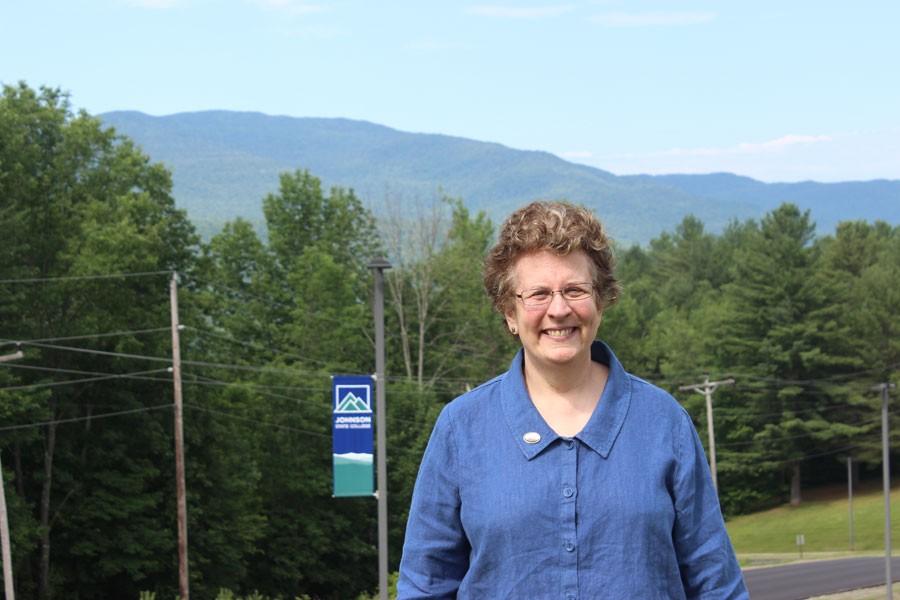Collins to convene student advisory council
It’s no question that students are the primary focus and driving force of college systems around the world. But, too often, the student voice goes either unheard or unacknowledged.
That’s precisely why JSC President Elaine Collins sought to form a Student Advisory Council: a group of students who would advise her on issues pertaining to student life as well as issues with the college.
“She made it really clear that she put a high value on feedback from students,” said Dean of Student Life and College Relations Dave Bergh. “Even though we have a Student Government Association already in place and they’re representatives of the student body, she wanted an additional group that could advise her and give her feedback on topics that are pertinent to student life, and, as the college is planning for the future, to make sure that the student voice is an active part of those conversations.”
Shavonna Bent, vice president of the SGA, confirms that the council was very much Collins’ idea, and that the focus is going to be on what students want to see improved at JSC.
“When Elaine Collins first visited, she was interested to hear that there was a lot of student ideas for improving campus.” Bent said. “So what we’re really hoping is that it’s a forum for her to hear from students in the advisory council, but also that other students go to these people with their ideas… So it’s a way for her to learn what students want.”
Bergh sent an email out to students on Aug. 31 asking for nominations for the council, including self-nominations. Each nomination had to include the nominee’s major, year of study, residency status, and a brief description of why the nominator feels they would be a good fit for the council.
According to Bergh, an email was also sent to faculty and staff asking for nominations. The importance of the nominating process was expressed to the faculty.
“The President and Vice President of the SGA, Nasser Abdel-Fatah and Shavonna Bent, went to the Faculty Assembly earlier this week to talk about a number of student-related issues,” Bergh said, “but one of them was to reiterate the importance this new group and to ask for faculty to nominate students.”
Bergh said the importance of having plenty of nominations lies in the concept of having diversity in the council.
“One of the things we agreed on early on was that we wanted the group to be as diverse as possible, in every sense of ‘diverse,’” Bergh said. “Including students from their first year through graduate students, students who live on campus and students who don’t, students in different fields of study, and students from different backgrounds with various histories and perspectives. I think that’s a tall task to do, and an important one.”
The deadline for nominations was Friday, Sept. 11.
There has been some initial review of nominees during the week of Sept. 14. That group consists of Dave Bergh; Krista Swahn, director of student activities and community service, and also the advisor for the SGA; Nasser Abdel-Fatah; Shavonna Bent; and Ben Simone, student trustee for the VSC and former SGA president.
As of Sept. 17, there was no official deadline for the council being announced, according to Bent.
Bergh explained that they’ve been having to figure this system out as they go, in regards to how to nominate and select students for the council.
“President Collins simply said she’d like to see this group created and then left it to myself and to the SGA to kind of determine the best way to go about identifying a group,” Bergh said.
According to Bent, they received a total of 20 nominations, and there are 15 spots to be filled on the council.
“If it gets bigger than that, it could lose its effectiveness, and people won’t have as much opportunity for sharing,” Bergh said. “That’s why I think the representative piece is important.”
According to Bergh, the council will most likely have three meetings with President Collins per semester, each lasting around an hour and a half.
“The main thing would be to come to those meetings prepared to talk about topics of interest,” Bergh said. “Folks who could make that commitment and engage in dialogue, that would be the main criteria.”
Bergh said that ideal candidates for the council would be students who truly want to improve student life, and the college in general, and who are comfortable sharing their opinions in a constructive manner.
“We want it to be representative, to make sure we’re hearing about things from across the spectrum, but we also would hope that students are not just singularly interested in their area,” Bergh said. “I think they would really be committed on being up to speed on some of the larger campus issues of interest for students and going beyond their own immediate interest, even though that’s an important part of the consideration. So I think really taking the time to familiarize themselves with campus matters.”
Both Bent and Bergh stated that the details of the council are still very much in the planning stages.
“I’m not sure of the formalized plan of action for what comes out of the meeting,” Bent said, “but I think it’s going to be all great things that are going to be good for Johnson.”



